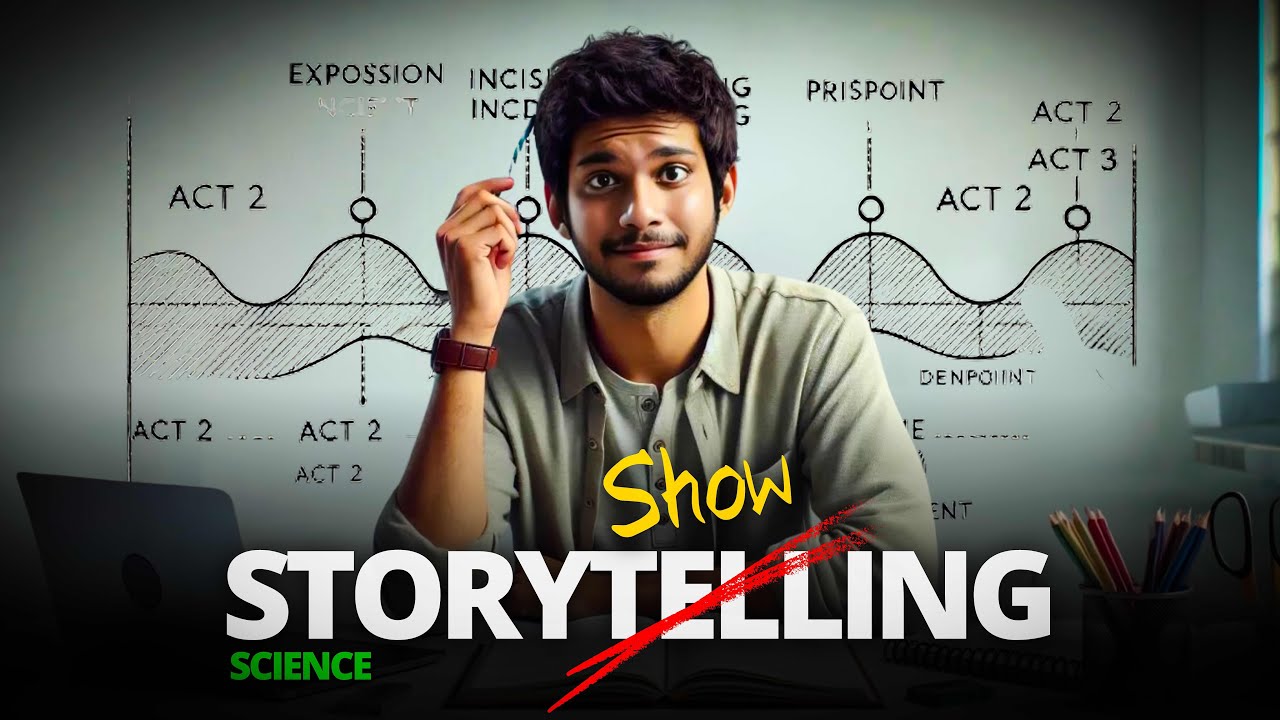Karen Eber: How your brain responds to stories -- and why they're crucial for leaders | TED
Summary
TLDRThis engaging talk emphasizes the power of combining storytelling with data to create a deeper connection with audiences. Through real-life examples, including a story about Maria’s lost phone and a CEO’s humbling encounter, the speaker demonstrates how storytelling activates more parts of the brain, fosters empathy, and builds trust. The talk also explores how data alone doesn’t change behavior, but when paired with emotional storytelling, it can drive action and reshape perspectives. The speaker advocates for leaders to harness the emotional and cognitive power of stories to inspire and engage others effectively.
Takeaways
- 😀 Storytelling engages the entire brain, creating an emotional and sensory experience for the listener.
- 😀 Through storytelling, leaders can build trust, as the act of sharing a story releases oxytocin, the 'feel-good' chemical.
- 😀 Neuroscience shows that data alone doesn’t drive decisions—emotions play a pivotal role in how we decide.
- 😀 The brain's emotional center, the amygdala, is responsible for decision-making, often before we are consciously aware of it.
- 😀 Stories help people feel seen and valued, leading to stronger connections and more effective leadership.
- 😀 Data is not self-explanatory; it is interpreted through personal experiences, biases, and knowledge.
- 😀 Combining data with storytelling creates a powerful tool that resonates on both an emotional and logical level.
- 😀 Leaders often overlook the potential of storytelling, thinking they need to rely solely on data and facts.
- 😀 A compelling story should answer three key questions: What is the context? What is the conflict? What is the outcome?
- 😀 Tension in storytelling builds engagement, keeping listeners hooked until the unexpected release of the narrative.
- 😀 Stories are not just entertaining—they are transformative, leaving listeners with changed perspectives and a clearer understanding of the message.
Q & A
Why is storytelling such a powerful tool for leaders?
-Storytelling is powerful for leaders because it activates multiple areas of the brain, creating a stronger emotional connection with the audience. It builds trust, empathy, and helps people remember key messages more effectively compared to dry data alone.
What is 'neural coupling' and why is it significant?
-Neural coupling is when the listener's brain mirrors the activity of the storyteller’s brain as they process the story. This creates an immersive experience for the listener, allowing them to feel as though they are actually experiencing the events of the story, which enhances empathy and understanding.
How does oxytocin play a role in storytelling?
-Oxytocin is a feel-good chemical that is released in the brain when people experience empathy. Storytelling helps trigger this release, making the audience more emotionally engaged and more likely to trust the storyteller.
Why doesn't data alone change behavior?
-Data alone doesn't change behavior because decision-making is primarily driven by emotions, not by logic. Our subconscious emotional reactions, influenced by our amygdala, guide our decisions long before we apply logical thinking.
What is the misconception about data interpretation?
-A common misconception is that data speaks for itself. In reality, people interpret data based on their personal knowledge, experiences, and biases. Without context or guidance, data can be misunderstood or lead to different conclusions.
What are the three key components of a great story?
-A great story answers three key questions: What is the context (setting and characters)? What is the conflict (the challenge or change)? What is the outcome (the resolution or takeaway)? These elements make a story engaging and impactful.
How does tension work in storytelling?
-Tension in storytelling builds anticipation in the audience by making them wonder what will happen next. This tension is then released with an unexpected twist or resolution, keeping the audience engaged throughout the story.
How do stories communicate organizational values?
-Stories communicate organizational values by demonstrating what is valued and what behaviors are encouraged or discouraged. They show these values in action, making them more tangible and relatable than abstract statements.
Why is it important to combine data with storytelling?
-Combining data with storytelling allows leaders to present facts in a way that is emotionally engaging and memorable. Storytelling helps the audience connect with the data on a deeper level, increasing the likelihood of the information being understood and acted upon.
Can data alone persuade an audience in a leadership setting?
-No, data alone is often not persuasive. Leaders need to connect with their audience emotionally to inspire action. Telling a story alongside data helps bridge the gap between facts and feelings, making the message more compelling and actionable.
Outlines

Dieser Bereich ist nur für Premium-Benutzer verfügbar. Bitte führen Sie ein Upgrade durch, um auf diesen Abschnitt zuzugreifen.
Upgrade durchführenMindmap

Dieser Bereich ist nur für Premium-Benutzer verfügbar. Bitte führen Sie ein Upgrade durch, um auf diesen Abschnitt zuzugreifen.
Upgrade durchführenKeywords

Dieser Bereich ist nur für Premium-Benutzer verfügbar. Bitte führen Sie ein Upgrade durch, um auf diesen Abschnitt zuzugreifen.
Upgrade durchführenHighlights

Dieser Bereich ist nur für Premium-Benutzer verfügbar. Bitte führen Sie ein Upgrade durch, um auf diesen Abschnitt zuzugreifen.
Upgrade durchführenTranscripts

Dieser Bereich ist nur für Premium-Benutzer verfügbar. Bitte führen Sie ein Upgrade durch, um auf diesen Abschnitt zuzugreifen.
Upgrade durchführenWeitere ähnliche Videos ansehen

ADHD Aha! | Sex, intimacy, and ADHD

How To Knock Out Any Woman Without Touching Her | Stoic Philosophy Daily |

Authenticity In Art

Storytelling: A Arte de Contar Histórias Memoráveis

Storytelling Science To Hook Viewer Till End | 4 Years in 10 Mins.

Me dê 9 MINUTOS e você APRENDERÁ TUDO sobre STORYTELLING
5.0 / 5 (0 votes)
